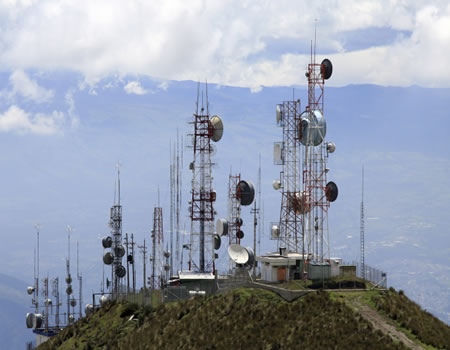“In spite of the rapid expansion of ICTs, there are substantial digital divides between countries and regions. However, there has been registered progress in ICT growth by least developed countries, in terms of connectivity as well as the use of the Internet. “Globally, more than half of households worldwide now have access to the Internet, though the rate of growth appears to have fallen below 5 per cent a year. There has also been significant progress in terms of bridging the gender digital divide across the regions,” the report stated.
According to ITU, one of the trends that will drive ICT in the next few years is the Internet of Things (IoT), which it said, will greatly expand the digital footprints. In addition to connecting people, organisations and information resources, it will also connect objects equipped with digital information and with sensing, processing and communication capabilities. This ubiquitous infrastructure, according to ITU, will generate abundant data that can be utilised to achieve efficiency gains in the production and distribution of goods and services, and to improve human life in innovative ways.
Again, it said, big Data analytics will extract useful knowledge from this flow of digital information. It will drive better understanding and predictions of ICT developments, as well as improved management and policy decisions. Making sense of proliferating information requires a workforce with appropriate analytical, computational, methodological skills and a high-capacity ICT infrastructure, it said.
Whatsmore, it added that, Cloud and other architectures will likely lower the entry barriers to scalable computing resources.
“They are starting to deliver flexible and on-demand computational services over the Internet, lowering the fixed-cost of ICT infrastructure, to the benefit of small- and medium-sized organisations. Realising their full potential will depend on the availability of reliable fixed and mobile broadband connectivity.
“Artificial intelligence will aid humans to make better decisions. In order to achieve this goal, each algorithm needs to be tailored carefully to existing data and the objectives pursued. This requires considerable human expertise in machine learning and large datasets to train algorithms.
“All of these advanced ICTs contribute to realising the critically important United Nations Sustainable Development Goals (SGDs). Promising applications already exist in areas such as manufacturing, precision agriculture, government, education, health care, smart cities and smart transportation. As part of broader initiatives, ICTs can contribute to achieving each of the 17 SDGs,” ITU added in the report.
According to ITU, harnessing the benefits of advanced ICTs requires appropriate infrastructures, services and skills. Networks will have to support diverse quality-of-service demands from applications and users while delivering robust and ubiquitous connectivity. This, it said, will require the roll-out of wireless Internet of Things platforms, and relying on network virtualisation and improved fiber connectivity. It added that moreover, it will require the development of advanced ICT skills among users.
“Advanced ICTs raise important concerns over next-generation digital divides. Network operators and users will have to adapt their business models to take advantage of the opportunities of the digital transformation. Thus, policy makers and regulators are called upon to create conditions facilitating entrepreneurial experiments and innovation,” the report stated.






